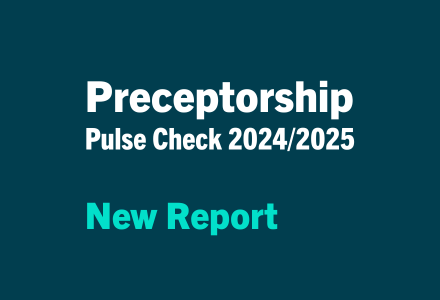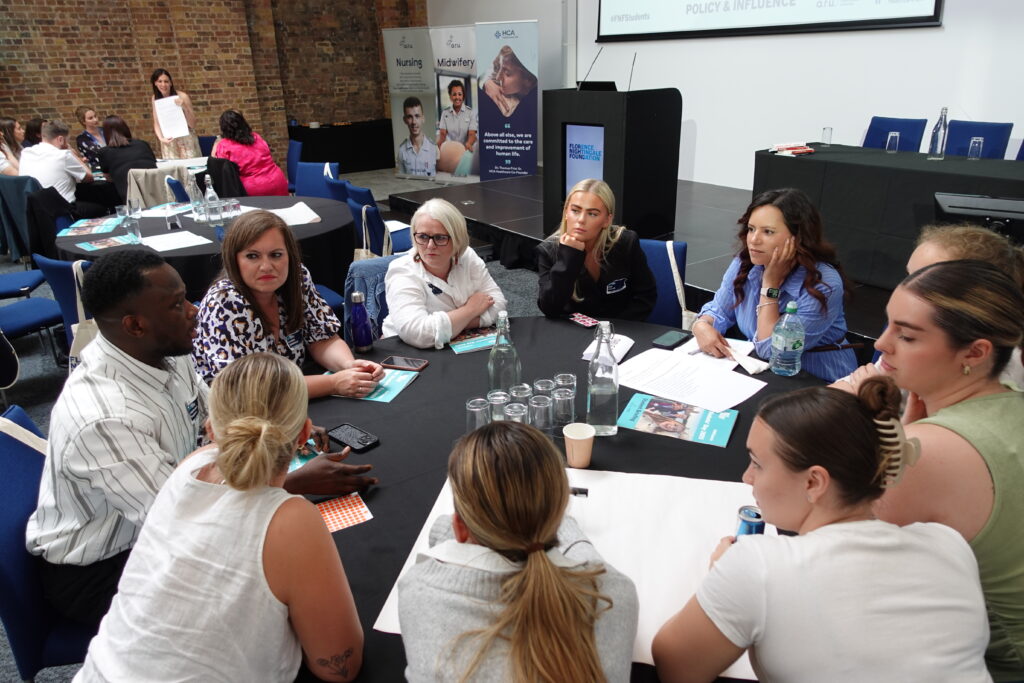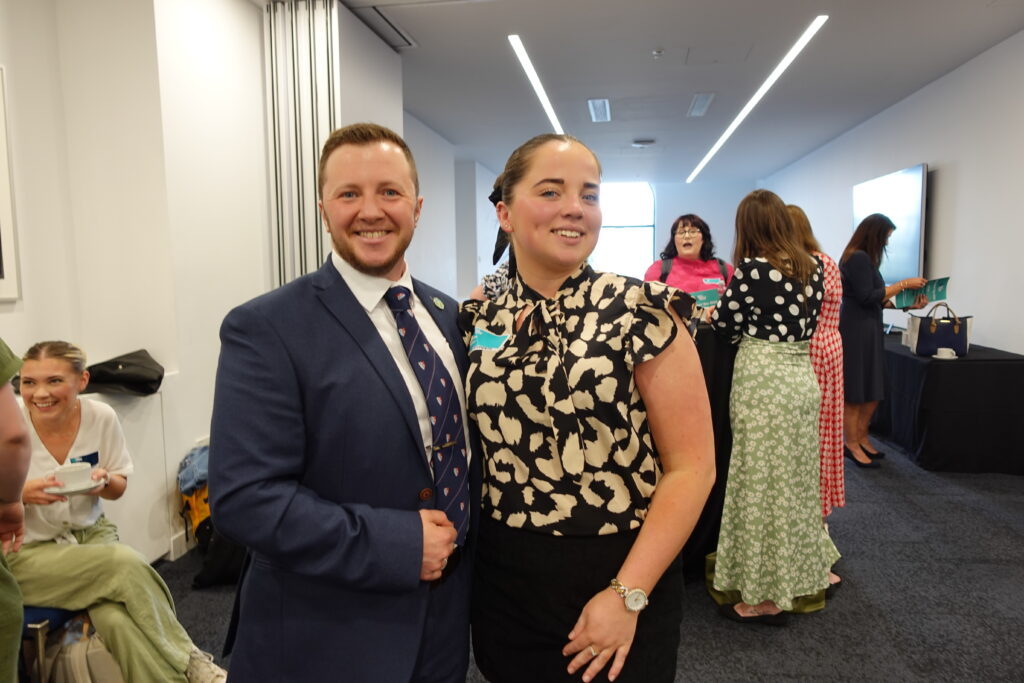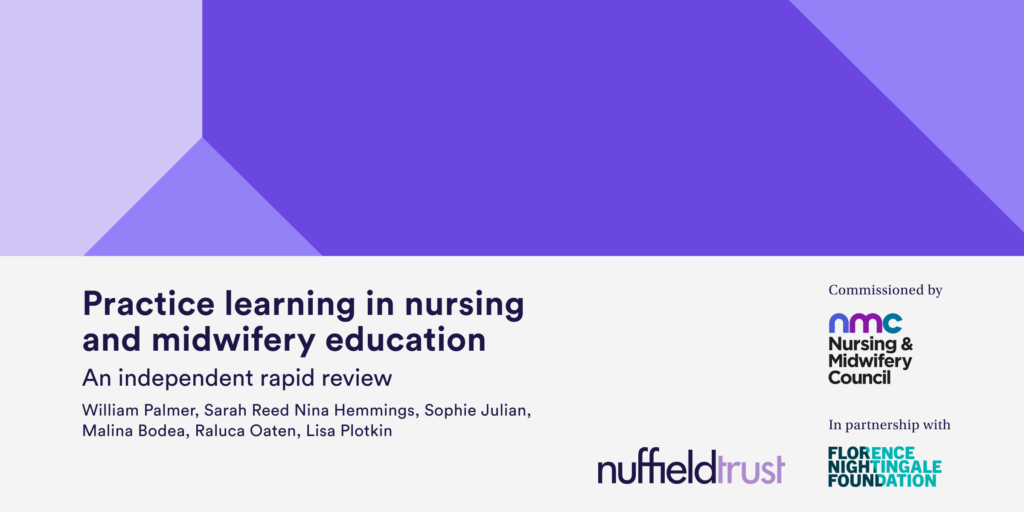
Below you will find some examples of past and current work we are collaborating on with students and early career professionals.
Preceptorship Insights
FNF has published its third national Preceptorship Pulse Check survey findings, delivering a timely insight into the experiences of nurses and midwives at a key point in their careers: the transition from education to professional practice.
Building on earlier surveys conducted in partnership with the Nursing Times and UNISON, this report brings together perspectives from four key groups: students, newly registered nurses and midwives, preceptors, and preceptorship leads and champions.
This latest survey reveals encouraging signs of progress—with 91% of newly registered nurses and midwives now being offered a preceptorship programme, up from just 61% in 2021/22. The report also underscores the importance of preceptorship in staff retention: 74% of new registrants say the quality of their preceptorship influenced their decision to stay with or leave their organisation.
Yet, the report also highlights significant variation in quality, access, and support. For example, internationally educated new registrants are 13% less likely to be offered preceptorship.
Practice learning research
Practice learning is a requirement for students wishing to become nurses, nursing associates and midwives in the United Kingdom. The Nursing and Midwifery Council (NMC) commissioned the Nuffield Trust, in collaboration with FNF, to undertake some research on practice learning. The research is intended to support the NMC’s aim to recognise and acknowledge innovation, and ensure that their requirements continue to equip students with the knowledge and skills to deliver the best possible care for people across a diverse range of care settings.
The main output from the work is an independent report, completed in December 2024. This revealed highly varied learning experiences and supervision, and calls for action to ensure high quality education.
The report examined the evidence relating to regulations and standards around students’ practice learning. It investigated how well NMC requirements are being implemented, and the challenges in providing optimal practice learning placements for the next generation of nurses, midwives and nursing associates.
Establishment of system level multi-professional student councils
Funder: Health Education England South East
Summary: The Student Councils programme, funded by Health Education England (HEE) South East, was a two-year initiative aimed at incorporating student perspectives into the development of education and learning structures across the region. The funding was used to develop six multiprofessional student councils, comprised of student nurses, trainee nursing associates, midwives, and AHPs across the six Integrated Care Systems (ICSs) in the region.
FNF undertook a realist evaluation of the programme to assess its implementation and outcomes. The evaluation demonstrates that well developed and adequately supported multiprofessional student councils can bridge the gap between practice providers, universities, and the student population – galvanising positive change and preparing students to transition into practice.
The programme was found to benefit students personally by boosting their core confidence, expanding their support networks, and helping them develop new skills in leadership, quality improvement, and stakeholder engagement.
The student councils benefited the educational structure of ICSs in numerous ways, including by providing a platform for students to voice concerns and identify issues in practice education. This inclusive approach has highlighted supervisory and assessment challenges across universities and practice settings.
Successful councils achieved tangible outcomes, such as establishing hardship funds and wellbeing support initiatives. These initiatives may contribute to reducing attrition rates amongst the student and newly qualified nurse, midwife, nursing associate and AHP populations.
Key factors for an effective student council programme include reimbursement schemes, an induction programme, leadership opportunities, social media use, system-level representation, alignment with training competencies, collaboration with RePAIR fellows, regional meetings, engagement with higher education institutions, and dedicated facilitative and administrative support.
Some councils faced challenges, including navigating an evolving system, reconciling local variations, managing engagement levels, setting realistic objectives, ensuring continuity of membership, addressing personality clashes, and a lack of administrative support.
Implementing positive action measures during recruitment, like reserving seats for global majority members and providing reasonable adjustments for those that required them, is critical for creating a diverse and inclusive council, despite logistical challenges that need mapping and action.
Learnings from this Student Councils programme evaluation can provide a blueprint for other regions and ICSs to follow to develop their own Student Council programme. The final evaluation includes specific recommendations for any regional Student Councils programme.
Outcomes: An evaluation report was published in January 2024. Download the report here.
Read more from our Student Councils Programme here.
Practice based student leadership programme (pilot)
Practice Partner: North Middlesex University Hospitals NHS Trust
University Partners: City, University of London, University of Hertfordshire, Middlesex University.
Summary: The Florence Nightingale Foundation (FNF) in collaboration with North Middlesex University Hospitals NHS Trust (NMUH) launched a pilot student leadership programme for nine student nurses and midwives. Supported by City University of London, the University of Hertfordshire and Middlesex University, the successful nine student leaders have embarked on a practice based bespoke leadership programme which includes mentorship from NMUH FNF Scholars. It will equip them with the skills and knowledge to tackle real workplace issues while having a deeper understanding of themselves and their impact on patient care.
This development is a commitment and a proactive response to a prompt from a challenge, from Chief Nursing Officer Ruth May, when she asked us: ‘look after our young nurses & midwives’.
Outcomes: All nine students are required to identify and deliver a presentation on a quality improvement project proposal which will improve patient outcomes, with the support of their mentor. This enables them to reflect on nursing and midwifery practice and embrace their ideas for improvement, to ameliorate or even generate new knowledge, by those nursing students, closest to patients, on the front line. It also encourages students to have a voice and use their leadership skills and ideas to impact directly on health and social care outcomes early on in their careers.
The team are committed to sharing learning and plan to make this a sustainable programme and opportunity for more student nurses and midwives. The programme has already been reported on in the Nursing Times and featured in an article on student leadership opportunities from the Nursing Standard.
The FNF Policy Unit will undertake a longitudinal mixed methods evaluation to explore the experience of this early career leadership intervention and impact over time. This will include the administration of the FNF Leadership Impact Scale which measures self-efficacy, career progression and perceived leadership competence over time and a series of qualitative longitudinal case studies.
Students Day
Every year we hold our #FNFStudents Day, bringing together a select number of nursing and midwifery students for a day packed full of networking and learning.
The 2025 students day was sponsored by Anglia Ruskin University and HCA Healthcare UK. 100 nursing and midwifery students spent the day networking with peers and quizzing established nursing and midwifery leaders. Attendees were mainly students from our Academy Member organisations but there were also a limited number of places available for non-members.
Following a unique and memorable day, students were escorted to Westminster Abbey. Here they joined nursing and midwifery leaders from across the four nations of the United Kingdom for the annual Florence Nightingale Commemoration Service.
Find more details in the news stories and blogs below.
Latest News


Nursing and Midwifery Student Leaders
Find out more
Nursing Leaders: Our Students’ Day Co-Chairs’ Experience
Find out more
